Fuel Economy Claims Are Achievable: Results From the 2nd Annual AJAC Eco Run

Fuel economy is increasingly becoming a priority for new car buyers, which is why the Automobile Journalists Association of Canada (AJAC) hosts its annual Eco Run.
The Eco Run brings together a group of new vehicles equipped with the latest and greatest in fuel saving technologies, for the purpose of seeing exactly how each one fares against its government-agency given fuel-consumption rating.
This year’s group of test vehicles included everything from hybrids, to diesels, to turbocharged models, to fully-electric vehicles and even a turbocharged hybrid. These are all different paths to the same destination: maximizing efficiency and reducing fuel consumption.
For the most part the tests proved that it is possible to achieve advertised fuel economy numbers, though it’s important to point out that each car was being driven in a way to maximize fuel economy. In other words, think of these numbers as a best-case scenario, combining both city and highway driving over a 140 mile route.
Let’s take a look at some of the most interesting new cars:
The Chevrolet Cruze diesel is one of a flock of new diesel-powered cars that are arriving in North America this year, and the Eco Run gave us a chance to take the Cruze diesel on its first extended-range drive to check out its real-word fuel numbers. When all was said and done, the car managed 40 mpg even, beating out its 33 mpg combined EPA rating (27/46 mpg city/highway) by a solid 7 mpg.
Though Volkswagen is regarded as one of the best brands when it comes to diesel technology, the company is continually trying to advance its hybrid portfolio as well, as can be seen by the Jetta Turbocharged Hybrid. The car uses a small turbocharged 1.4-liter engine combined with an electric motor to give it an EPA rating of 42 mpg city, 48 mpg highway and 45 mpg combined. Over the trip, it managed 53 mpg combined, putting both the EPA and Cruze diesel to shame, especially considering the Jetta Hybrid has a slightly lower entry price than Chevy’s new diesel.
Some of the stand-out examples of over-achievers among the group, there was, however, one car that failed to live up to expectations: the Ford C-Max. The small crossover managed just 43 mpg combined, falling 4 mpg below its 47 mpg combined EPA rating. Again, it’s important to point out that this number was achieved by drivers looking to maximize the vehicle’s fuel economy.
This is not the first time that Ford’s mpg ratings have been called into question. In addition to our own past testing, both the C-Max and the Fusion Hybrid (which uses an identical powertrain) have been cited by Consumer Reports for failing to live up to expectations. While some discrepancies between claimed fuel economy numbers and real world results are expected, the product testing publication noted that the difference in these cases constituted the largest gap of any vehicles they have ever tested. Currently the EPA is investigating whether it needs to reevaluate its estimates for these cars.
Getting away from specifics, the Eco Run demonstrated a few more general trends. First off, the average fuel consumption of the 22 vehicles was 44 mpg, with the majority of the vehicles besting their EPA fuel numbers, proving that driving style can and will impact fuel consumption a great deal. Looking at just the efficiency of one fuel source over another, battery-electric vehicles proved to be the most frugal users of power, but once again they demonstrated their limitations, as each leg of the Eco Run could only be a preset distance that the EVs could handle.
Looking at trends in diesel versus gasoline, the vehicles powered by gas tended to be more efficient around town, while their diesel counterparts proved better on the highway.
Click the link below to see the real-world MPG numbers achieved during the AJAC Eco Run.
Get the Flash Player to see this player.

Stephen covers all of the day-to-day events of the industry as the News Editor at AutoGuide, along with being the AG truck expert. His truck knowledge comes from working long days on the woodlot with pickups and driving straight trucks professionally. When not at his desk, Steve can be found playing his bass or riding his snowmobile or Sea-Doo. Find Stephen on <A title="@Selmer07 on Twitter" href="http://www.twitter.com/selmer07">Twitter</A> and <A title="Stephen on Google+" href="http://plus.google.com/117833131531784822251?rel=author">Google+</A>
More by Stephen Elmer



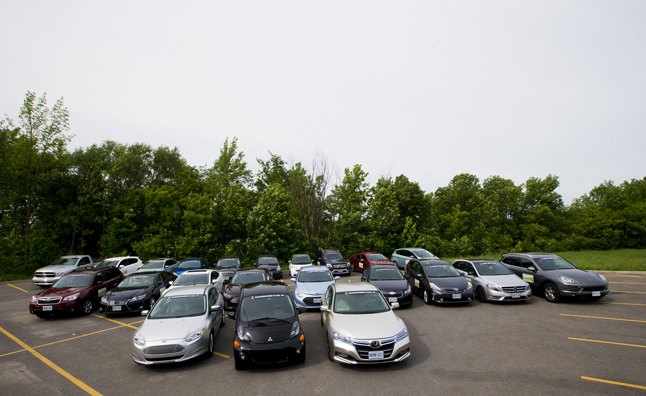

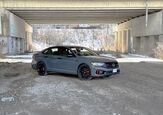



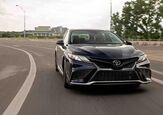










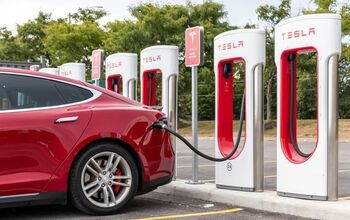
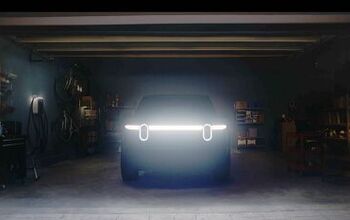
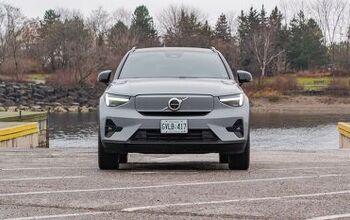

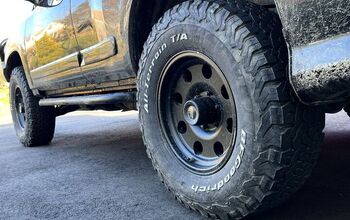


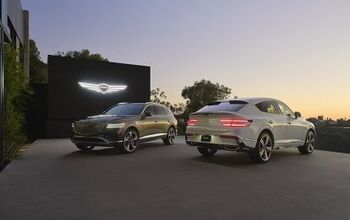
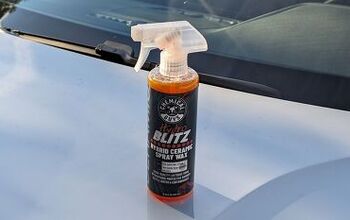
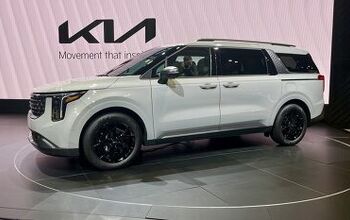

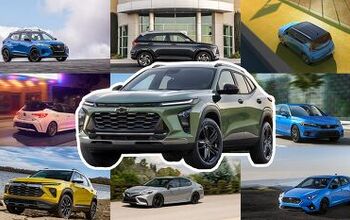

Comments
Join the conversation